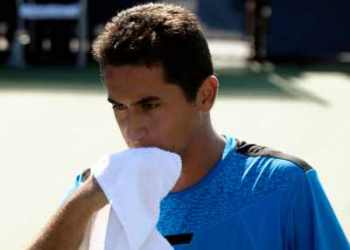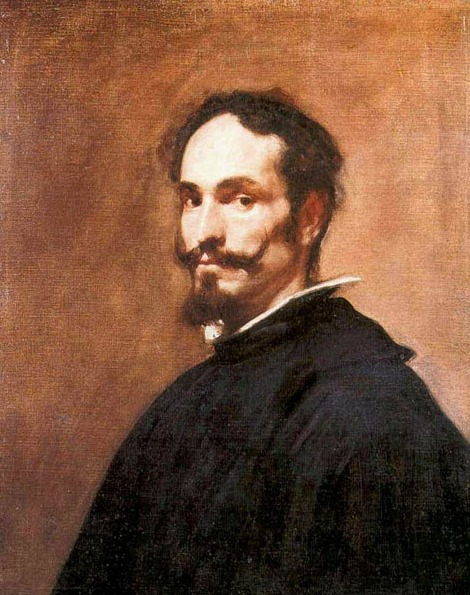August 21
Saints Days : Pio X, Ciriaca, Anastasio, Fidel and Bernardo Tolomeo
1415 - Henry the Navigator leads Portuguese forces to victory over the Marinids at the Battle of Ceuta.
1520 - The troops of Carlos I set fire to the city of Medina del Campo in the War of the Communities of Castile.
1520 - The troops of Carlos I set fire to the city of Medina del Campo in the War of the Communities of Castile.
1573 - Spain begin siege of Alkmaar in the Netherlands

Nicolás Amargo
1680 - Pueblo Indians capture Santa Fe from the Spanish during the Pueblo Revolt.
1913 - In Bilbao,, the Estadio de San Mamés is inaugurated.
1975 - GRAPO terrorists start their activity in Madrid killing two dogs from the Civil Guard dog unit
2006 - Six die when the night train derails at Villada in Palencia
1913 - In Bilbao,, the Estadio de San Mamés is inaugurated.
1975 - GRAPO terrorists start their activity in Madrid killing two dogs from the Civil Guard dog unit
2006 - Six die when the night train derails at Villada in Palencia
2023 - King Felipe VI began consultations with leaders of Spain's political parties Monday to see which one has the best chance to form a government following an inconclusive national election last month.
Births
1689 - José Pradas Gallén, baroque composer born in Villahermosa del Rio (d. 1757)
1739 - Mariano Salvador Maella, painter (d. 1819)
1821 - Carolina Coronado, poet (d. 1911)
1906 - Joaquim Homs, composer (d. 2003)
1920 - José Cerviño Cerviño, bishop (d. 2012)
1927 - Fina de Calderón, writer and musician (d. 2010)
1946 - María Uriz, soprano.
1964 - Esteban González Pons, politician.
1985 – Nicolás Almagro, tennis player
The July 23 election left no obvious coalition with a clear path to power. Parties on the left and the right received almost an equal number of seats.
The king started his talks with the representatives of several smaller parties. He is expected to wrap up the sessions Tuesday, when he plans to receive acting Prime Minister Pedro Sánchez, whose Spanish Socialist Workers' Party finished second in the election, and Alberto Núñez Feijóo, whose right-of-center Popular Party won the most votes.
Births
1689 - José Pradas Gallén, baroque composer born in Villahermosa del Rio (d. 1757)
1739 - Mariano Salvador Maella, painter (d. 1819)
1821 - Carolina Coronado, poet (d. 1911)
1906 - Joaquim Homs, composer (d. 2003)
1920 - José Cerviño Cerviño, bishop (d. 2012)
1927 - Fina de Calderón, writer and musician (d. 2010)
1946 - María Uriz, soprano.
1964 - Esteban González Pons, politician.
1985 – Nicolás Almagro, tennis player
1989 - Aleix Vidal, footballer
Deaths
1157 - Alfonso VII of León and Castile (b. 1105)
Deaths
1157 - Alfonso VII of León and Castile (b. 1105)

Juan de Tassis - https://www.geni.com/
1622 - Juan de Tassis, 2nd Count of Villamediana, poet born in Lisbon, His father, Juan de Tassis y Acuña, 1st Count of Villamediana, upon whom the title of count was conferred by King Felipe III of Spain in 1603, was a diplomat heading the Spanish legation who signed the Treaty of London May 1604
On leaving Salamanca he married in 1601 and succeeded to the title on the death of his father in 1607, he was prominent in the life of the capital, was forbidden to attend court, and resided in Italy from 1611 to 1617.
On Villamediana's return to Spain, he was soon noted as a satirist. Prominent men such as the Duke of Lerma, Rodrigo Calderón, Count of Oliva and Jorge de Tobar were frequent targets. Villamediana was once more ordered to withdraw from court in 1618. He returned on the death of Feilipé III and was appointed gentleman-in-waiting to Felipé IV's young wife, Elisabeth of France, daughter of Henri IV
According to legend, a fire broke out while Villamediana's masque, La gloria de Niquea, was being acted before the court on 14 May 1622, and he carried the queen to a place of safety. Suspicion deepened; Villmediana neglected a significant warning that his life was in peril, and 'he was murdered as he stepped out of his coach. The responsibility for his death was divided between Felipé IV and Olivares (the King's chief minister and favourite)' In addition, Narciso Alonso Cortés discovered documents in Simancas that implicated Villamediana in a trial on sodomy which concluded with the burning of five young men on 5 December 1622. Some consider that his murder was the result of this trial; others attribute it to his satires or to dangerous liaisons. Villamediana was also the subject of homophobic innuendo in a satirical poem by Quevedo.
Villamediana's works, first published in Saragossa in 1629, contain both his satirical and more serious verses(b. 1582)
1814 - Antonio Carnicero, painter (b. 1748)
1876 - Ildefons Cerdà, civil engineer and politician (b. 1815)
1986 - Bata, footballer (b. 1908)
1992 - Isidro Lángara, footballer (b. 1912)
